探究海外研修 inバリ!(day2)
- 宿泊行事
- 探究
- 国際交流・海外研修
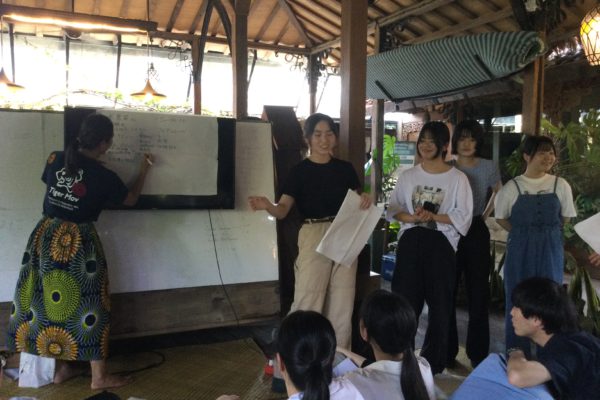
On the second day, fieldwork was divided into “water issues,”“garbage issues,”and“agricultural issues.”
The fieldwork instructors are from “su-re.co(Sustainability & Resilience).”(HP:https://www.su-re.co/)
We had the representative, Takeshi Takama,talk about our mindset for fieldwork.
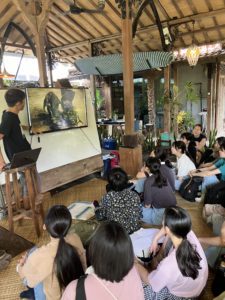
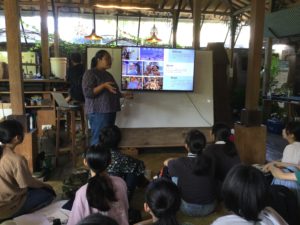
“water issues,”
First we went to see a nearby river where a local group set a filter to stop garbage from running.
Although Bali is famous as a tourist destination,we saw various problems with water pollution and garbage.
After that, we interviewed local people to test our hypothesis on water issues.
Each time, the group closely examined what they heard and discussed what they should ask next.
from a student
First, I was surprised at the difference between Japan and Bali. For example, there are wild dogs and motorbikes everywhere. The water in the hotel is very clean, but I was shoced to see the river full of garbage. I found that water problem and garbage problem are closely connected. So I want to see these issues from various perspectives. (Riiho Hayashi)
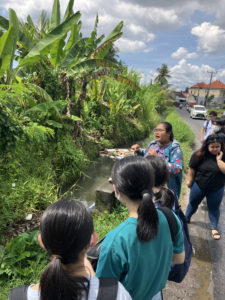
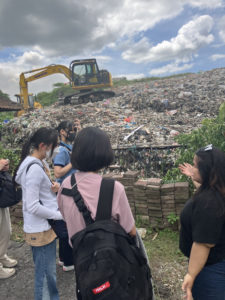
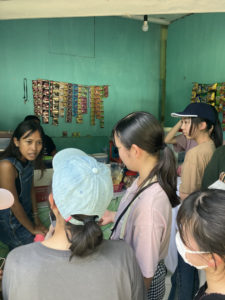
“garbage issues”
First we went to see a nearby river with the water issue group.
We found water and garbage issues are closely related to each other in Bali.
Then we went to a landfill area. We saw a huge mountain of discarded garbage.
Lastly, we visited “4 Ocean”, an organization where the waste from the sea is collected and classified according to the material and color.
(HP: https://www.4ocean.com/)
They create beautiful bracelets with recycled small pieces of plastic.
from a student
I had been optimistic to think that the garbage problems would occur only because the local people didn’t know how to separate wastes. However, I found that this was not such a simple issue. We need to act to change not only the system of garbage collecting but the attitude towards garbage around the city from both the local government and local people’s views. (Satomi Ogasawara)
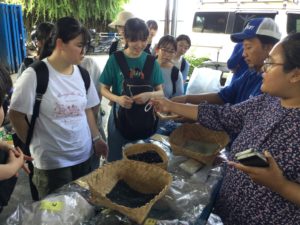
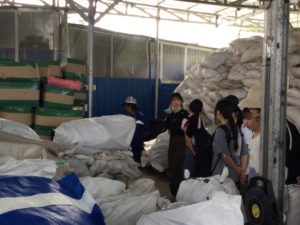
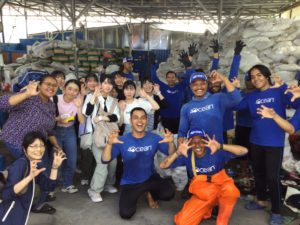
All teams worked through a cycle of hypothesis, inquiry and discussion.
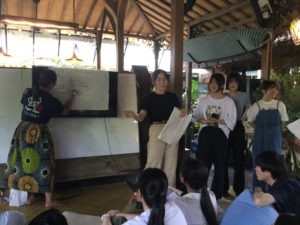
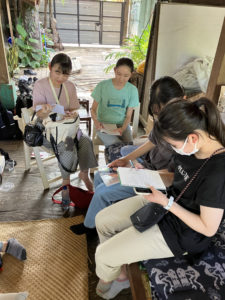
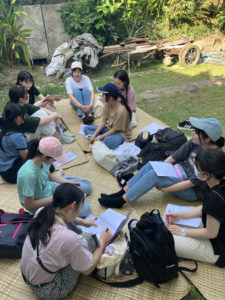
Every meal we had in Bali was delicious.
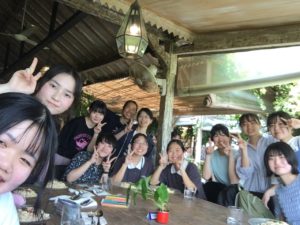
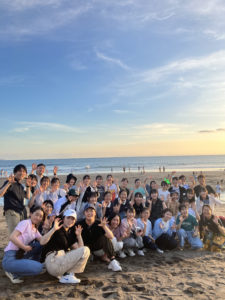
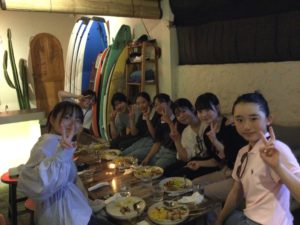
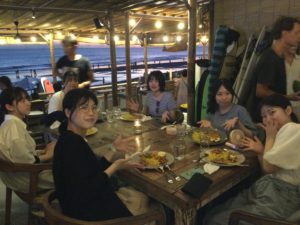
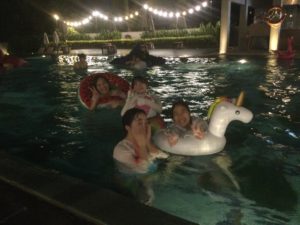
We will never forget seeing the beautiful sunset at a beach with a great dinner .
At the end of the day, we could enjoy swimming in the pool of our hotel for a short amount of time.
Tomorrow we will further deepen our research based on today’s results.
Attending teacher Hideki iri
(2日目は「水問題」「ゴミ問題」「農業問題」に分けてフィールドワークを行いました。
フィールドワークの講師は「su-re.co(Sustainability & Resilience)」の方々です。
代表の高間 剛さんにフィールドワークへの心構えについてお話いただきました。
「水の問題」チーム
まず、近くの川を見に行きました。そこでは地元のグループがゴミの流出を防ぐためにフィルターを設置していました。
バリ島は観光地として有名ですが、水質汚染やゴミなどさまざまな問題が見られました。
その後、水問題に関する仮説を検証するために、地元の方々にインタビューをしました。
毎回、グループで聞いたことを整理し、次に何を質問すべきかを話し合いました。
(以下、生徒より)
まず、日本とバリ島の違いに驚きました。 例えば、どこにでもいる野犬や交通マナーなどです。 ホテルの水はとてもきれいだったのですが、ゴミだらけの川を見てびっくりしました。 水問題とゴミ問題は密接に関係していることが分かりました。 なので、いろんな視点から見ていきたいと思います。
「ゴミ問題」
まず、水問題グループと一緒に近くの川を見に行きました。
バリ島では水とゴミの問題が互いに密接に関連していることがわかりました。
それから私たちは埋立地に行き、捨てられたゴミの山を目にしました。
最後に、海洋廃棄物を収集し、素材と色に応じて分類する組織「4 Ocean」を訪問しました。
ここでは、リサイクルされた小さなプラスチック片を使って美しいブレスレットを作ります。
(以下、生徒より)
私は、ゴミ問題が起こるのは、地元の人々がゴミの分別方法を知らないからだと楽観的に考えていました。 しかし、これはそれほど単純な問題ではないことがわかりました。 ゴミ収集の仕組みだけでなく、自治体や地域住民の視点から街中のゴミに対する意識を変えていく行動が必要です。
すべてのチームは、仮説、調査、議論のサイクルを経て取り組みました。
バリ島で食べた食事はどれも美味しかったです。
素晴らしいディナーを楽しみながら、ビーチで美しい夕日を見たことを決して忘れません。
一日の終わりには、ホテルのプールで少しの間楽しむことができました。
明日は、今日の結果をふまえてさらに深化させます。)